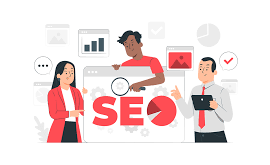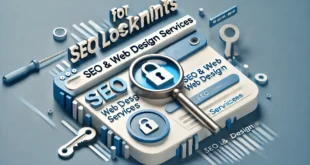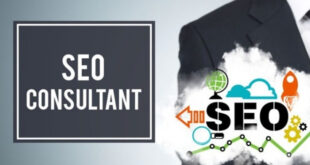1. Cost-Effectiveness
One of the most attractive aspects of digital marketing is its affordability compared to traditional methods like TV ads, radio spots, and print advertisements. Small businesses, in particular, benefit from this cost-effectiveness since it allows them to compete with larger companies on a more level playing field. With digital marketing, Digital marketing agency in abu dhabi businesses can control their budget down to the last dollar, allowing them to get the best return on investment (ROI) possible.
Example: Running a Facebook ad campaign can be done for as little as $5 a day, making it accessible to businesses of all sizes. Additionally, methods like content marketing and social media organic growth can deliver lasting results without requiring substantial upfront costs.
2. Precise Audience Targeting
Digital marketing enables businesses to pinpoint their ideal customers with remarkable accuracy. Platforms like Google Ads, Facebook, and Instagram allow advertisers to choose specific demographic, geographic, psychographic, and behavioral factors to reach people who are most likely to be interested in their products or services.
With tools like search engine marketing (SEM) and social media advertising, businesses can ensure their message reaches the right audience at the right time. This degree of targeting means your ad spend is allocated effectively, minimizing waste and maximizing impact.
Example: An online clothing store targeting women aged 25-40 can create personalized campaigns for this exact demographic on social media, enhancing their conversion rates.
3. Global Reach and Scalability
The internet provides an unprecedented opportunity for businesses to reach a global audience, regardless of their physical location. With digital marketing, companies can scale their campaigns effortlessly to reach customers worldwide without needing physical storefronts in each region.
Digital campaigns also allow businesses to gauge success in one market and then replicate those tactics in others with ease. Whether you want to target local clients or expand internationally, digital marketing provides the tools to grow your audience seamlessly.
Example: E-commerce platforms that sell globally can use digital marketing to tap into international markets through localized ads, search engine optimization, and multilingual content.
4. Real-Time Analytics and Data
Traditional marketing offers limited ways to measure success, often relying on estimations or delayed reports. With digital marketing, however, businesses have access to real-time analytics tools, such as Google Analytics, which track key metrics like clicks, impressions, conversions, and more.
This data allows businesses to see what’s working and what isn’t almost instantly. This agile approach empowers marketers to refine campaigns, reallocate budgets, and make informed decisions that boost results and eliminate unnecessary spending.
Example: A company running a pay-per-click (PPC) campaign can monitor which keywords are driving the most conversions and adjust their strategy within hours if needed.
5. Enhanced Engagement and Interaction
Digital marketing fosters direct engagement with customers, unlike traditional marketing, which is often one-sided. Through social media, email, and other digital channels, brands can interact with audiences on a more personal level, fostering trust and building brand loyalty.
Interactive content such as polls, surveys, quizzes, and live videos are highly effective in keeping users engaged and encouraging them to interact with the brand. This connection often leads to greater customer satisfaction and more long-term loyalty.
Example: A business hosting live Q&A sessions on Instagram can directly address customer concerns, providing a more humanized brand experience that fosters loyalty.
6. Higher Conversion Rates
With digital marketing, tracking the journey from awareness to conversion is easier, helping businesses understand what drives customer purchases. By analyzing user behavior and interests, digital marketing tactics such as email marketing, retargeting ads, and personalized content can be employed to guide prospects through the sales funnel efficiently.
Conversion-focused digital strategies have been proven to generate higher results, allowing businesses to improve their ROI by investing in methods that increase the likelihood of sales or sign-ups.
Example: A company using retargeting ads to reconnect with potential customers who previously visited their website can significantly increase conversion rates by re-engaging these warm leads.
7. Greater Flexibility and Adaptability
In the fast-paced world of marketing, flexibility is key to staying relevant. Digital marketing allows businesses to test different strategies and adapt quickly to market changes or consumer trends. From launching new social media content to updating SEO strategies, businesses can respond to real-time data and audience feedback without extensive delays.
This adaptability makes digital marketing ideal for businesses that need to pivot their strategies, ensuring they remain competitive and responsive to market demands.
Example: A food delivery service can adjust its advertising and messaging immediately to reflect consumer sentiment, such as promoting contactless delivery during health crises.
Conclusion
The power of digital marketing lies in its ability to provide targeted, scalable, and measurable strategies that drive real business growth. By leveraging the cost-effectiveness, real-time insights, and flexibility of digital marketing, businesses can connect with audiences more effectively and improve their overall performance in today’s competitive landscape. Whether you’re a small business or a global enterprise, embracing digital marketing is essential for future-proofing your brand in the digital era.
 The Random Collective Where Curiosity Meets Creativity
The Random Collective Where Curiosity Meets Creativity





